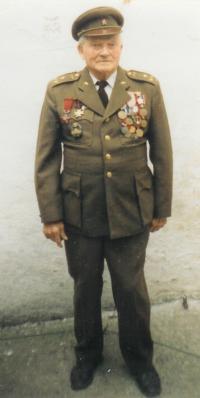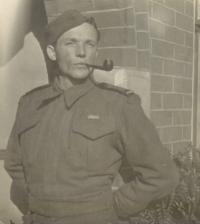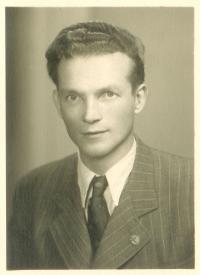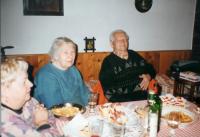He never talked much about his work, with him, everything was a military secret

Stáhnout obrázek
František Švrček was born on the 12th of August 1912 in Mutěnice (Hodonín district) to a smallholder family that had six children. In his youth he was active in the DTJ (Workers‘ Gymnastics Union), politically he tended towards social democracy. He spent his two years of compulsory service in Nitra. From the Summer of 1937 he was a member of the International Brigades in Spain. As a member of the Czechoslovak Foreign Army he fought in France, from there he moved to England; he returned to the Continent to fight at Dunkirk. After the war, he became a professional soldier, he never had any problems with the reign of the Communist regime, throughout his participation in the Spanish Civil War nor for his stay in the Western Army.



